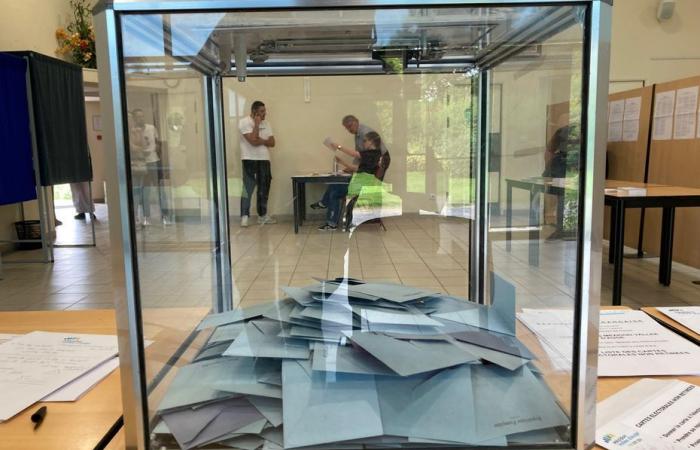In 18 of the 28 Normandy constituencies in the region, RN candidates took the lead over their opponents in the first round. While some of these far-right candidates are already familiar to voters, others did not campaign or live in another region. How can we explain that they swept the votes cast?
RN candidates unknown or almost unknown to voters, coming out on top in a confrontation with a well-known local elected official rooted in his territory: this is not uncommon during this election.
This is the case in the Some. The 3rd constituency is the only one where the RN is in the lead. Stéphane Travert (Ensemble-Renaissance), a candidate well established in the territory and Pierre Giry, RN candidate, find themselves with a near-equal score. Both obtained a little over 33% of the votes cast in the first round. Pierre Giry is not known locally, he held a position in a Parisian strategy firm, and this is his first candidacy in an election. Stéphane Travert, for his part, had the benefit of his experience as a regional councillor since 2010 and a member of parliament since 2012.
In the 4th constituency of theYourRN candidate Patrice Pauper is 4 points ahead of Philippe Brun, outgoing PS MP, candidate of the New Popular Front. Patrice Pauper is a lawyer in Essonne, he lives in Juvisy-sur-Orge. He is one of those who were sent by the far-right party to win seats.
As for Gérard Vienne, in the 2nd constituency of theOrnealthough he lives in Vimoutiers and took part in the municipal elections in 2014, he was not very well known in the rest of the constituency but managed to endanger Véronique Louwagie in his own stronghold.
“This wave of a party without local roots proves that it is the national aspect that prevails” deciphers Christophe Boutin, political scientist and professor of law at the University of Caen. He pursues: “the legislative vote is ambiguous. We are elected In a constituency but not from one constituency. A deputy must make laws and not play social worker locally, but some are more or less involved at the local level, in their territory.”
If the elected official does not answer the questions that the voters are asking, he is removed.
Christophe Boutin, political scientist
The RN vote also reflects the concerns of the population and faced with this, the locally rooted elected official is no match. “In the villages of Normandy, people feel that they are not taken care of, they have the feeling of being forgotten. Besides purchasing power, what interests them is insecurity and immigration. In rural areas, they vote RN saying to themselves “even if we are not concerned by insecurity and immigration, we see what it looks like elsewhere and we don’t want it here” explains Christophe Boutin.
Finally, the last element of explanation: the image of RN elected officials.Voters also see how the National Rally candidates behaved, they have calmed down, they wear a tie… people think that the MP, whoever he is, will follow the party’s instructions. It was Jordan Bardella who convinced them.”






